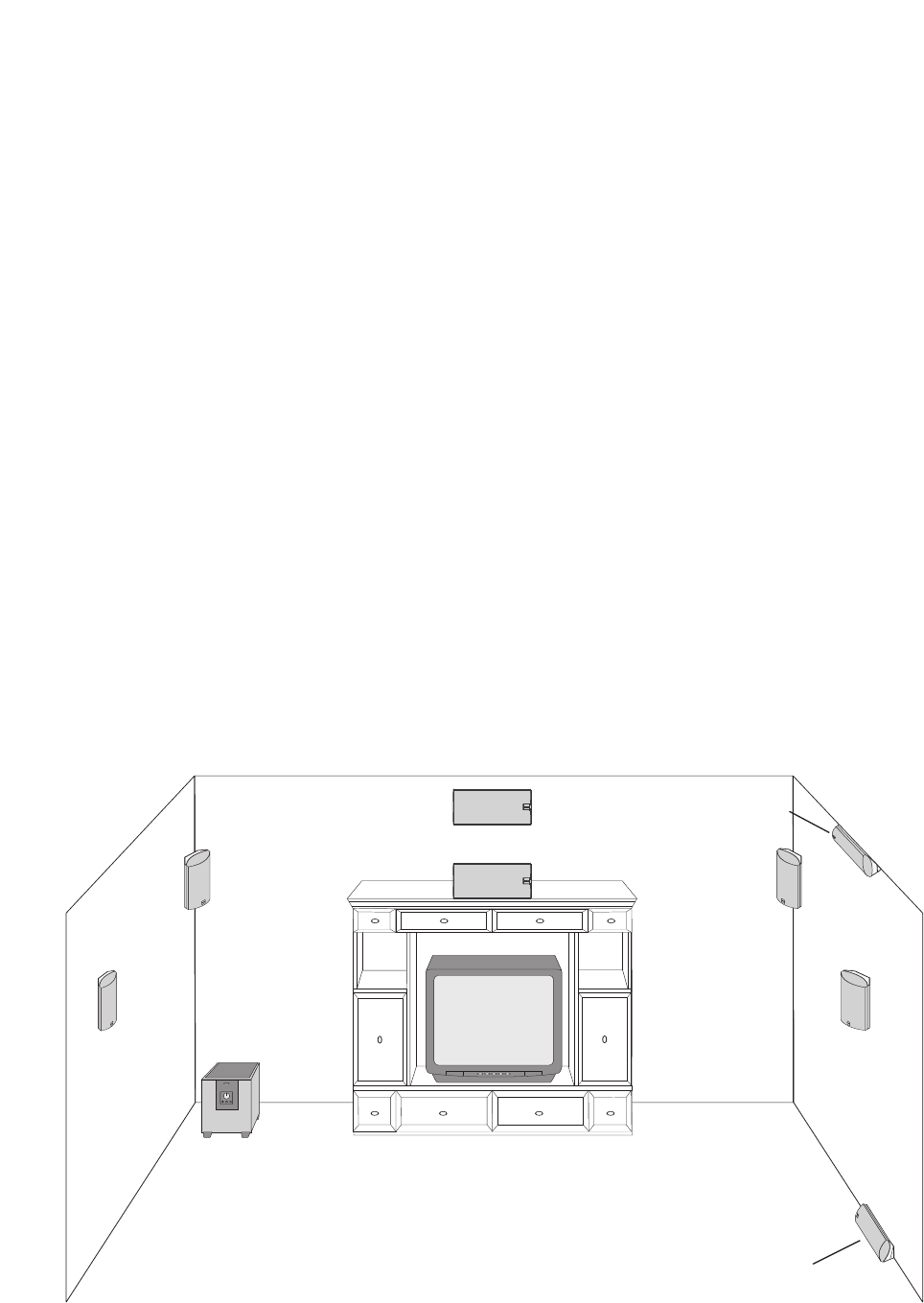
7
volume0
1
2
3
4
5
6
7
8
9
10
11
12
crossover Hz crossover polarity
50 150
80 120set none0° 180°
Bos
ton
front main corner mount
(or any other corner)
rear surround
flat mount
horizontal floor or
shelf placement
angled up
rear surround
angled down
rear surround
angled back
horizontal flat mount
horizontal untilted
with rear stand
Using the Bravo II as a Main Speaker
The Bravo II can provide exceptional performance from 80Hz and above. For deep bass reproduction, a pow-
ered subwoofer might be a suitable addition to the Bravo II. In small or medium size rooms, two Bravo IIs should
provide ample volume, given appropriate amplifier power of between 15 and 125 watts. In larger spaces, addi-
tional Bravo IIs may be necessary.
For broad, stereo coverage, vertical corner mounting of the Bravo II will produce excellent results. This tech-
nique will work especially well in situations where the distance between the two speakers is approximately 12 to
18 feet.
Using the Bravo II as a Surround Speaker
Two Bravo IIs can be used as surround speakers for Dolby
®
Surround, Dolby
®
Pro Logic
®
, Dolby
®
Digital and DTS
®
surround sound formats. A third or fourth Bravo II can be added for use with Surround EX and DTS
®
ES surround
sound formats. In general, best results will be obtained when the surround speakers are placed above ear level and
either behind or beside the listening area. However, if attaching speakers to the wall is not an option, then the
Bravo IIs can be placed horizontally directly on the floor. Since the low frequency limit of the Bravo II is approxi-
mately 80Hz, speaker bass management should be set to "small." This will redirect the surround channels’ bass
infor
mation to either the system’s subwoofer or main speakers. Please consult your surround sound electronics
owner’s manual for additional information about speaker placement and bass management
Mounting Possibilities of the Bravo II
We designed the Bravo II to be mounted or placed in a wide variety of configurations. Shown below
are seven of the most common possibilities for you to consider.










